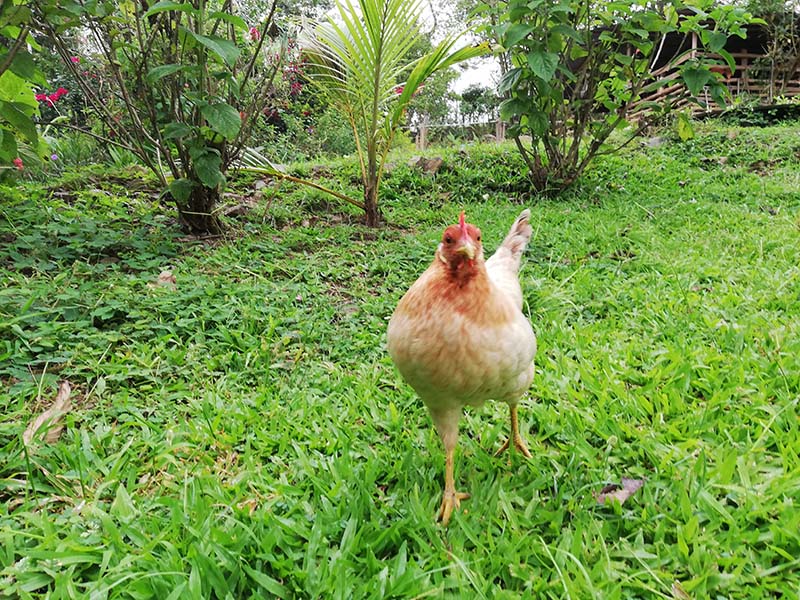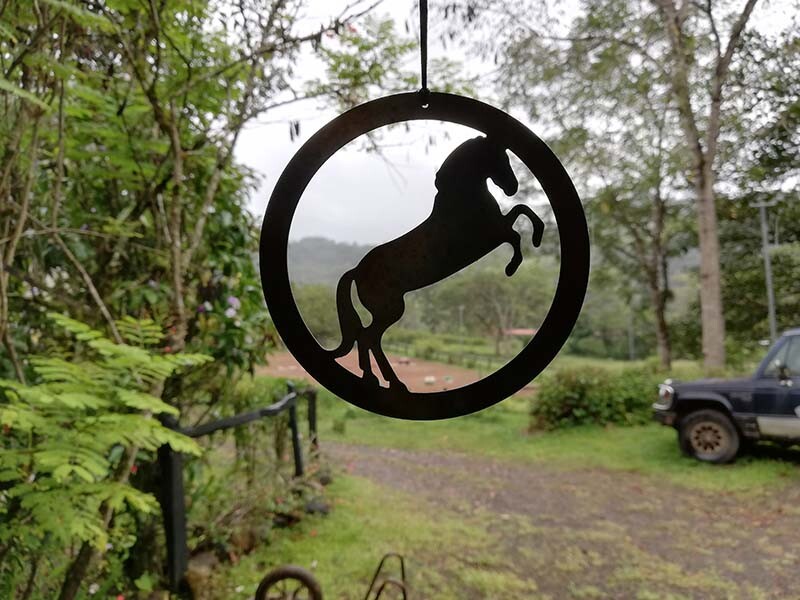
The following post was written by Global Gap Year Fellow Alexis Dumain.
Horses are some of, if not the most, illogical and insecure animals on this planet; however, the month I spent interning at a B&B/natural horsemanship stable and learning how to speak their language taught me more about compassion and deeply-rooted confidence than any other being I’ve come across.
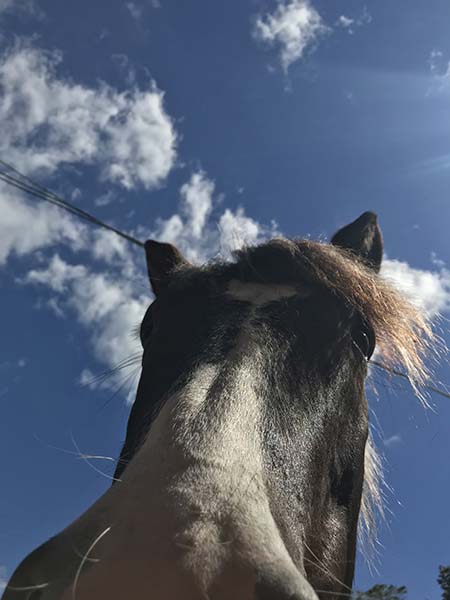 Some things I learned:
Some things I learned:
- Shoveling poop is meditative, especially when it’s so early that your brain cells aren’t yet fully firing.
- Flinging said shoveled poop over the fence line is cathartic and makes me feel like some badass jungle warrior.
- Sometimes said flung shoveled poop hits a tree and then blows back to you in the wind like some sort of karmic penance.
- Falling over with a wheelbarrow full of said shoveled poop because, in your haste to dispose of said shoveled poop, you tripped on a rock is a humbling experience that I believe should be part of every curriculum.
That’s all.
…
Just kidding! I suppose (aside from fecal matters) I also learned*:
- Quality of the request equals quality of the response.
- Horses go through menopause… Fascinating!
- Very few beings intrinsically want to cause you harm; so much of our conflicts arise from misunderstandings about the originator. Maybe you just got in the way, maybe they felt they had no other option and struck out, you never know. Say it with me, IT’S NOT ABOUT YOU. Similarly, other clashes spring up because we assume that everyone else operates under the same motivating values. People, for example, are largely driven by praise, recognition, etc. Horses, are driven by comfort, play, food, and safety, and your gold star means nothing to them. It’s like their version of love languages, and presuming that anyone will respond in a uniform fashion to any stimulus is foolish.
- How to play and have fun…with no ulterior motive or agenda. When did we lose this knack? The majority of my time was spent on the ground, attempting to achieve some fluency in this lingua franca, the games they play with each other to build relationships. So often, we, as equestrians but also just as people, are so task-oriented, but here, the only objective is the dialogue, the conversation. The horse spooked and refused to go over the cross rail? Okay, no big deal – let’s talk about it. All too frequently, the only emphasis is on whatever goal we have mandated in our silly, puny minds that MUST be done. Why? BECAUSE WE SAID SO. Instead, let’s learn to start from the ground up – literally. Let me respect your boundaries and prove that everything is okay. (Can you imagine the world if we arrived at all our interactions with this level of flexibility and compassion?)
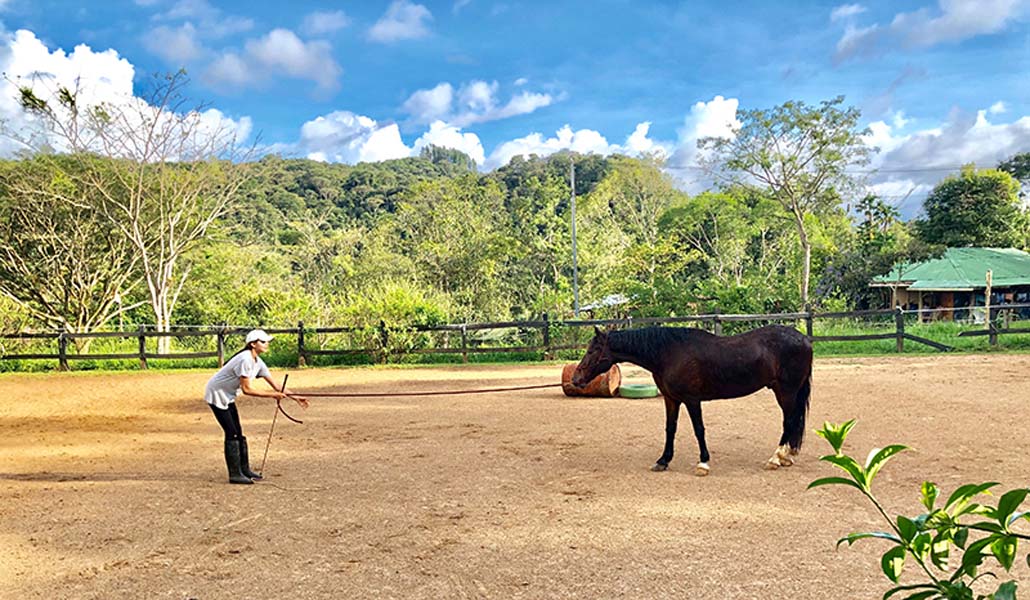
- Starting small gets the best result. There is so much less force required than we believe. When playing games with each other to establish a hierarchy, horses start small, almost imperceptibly (Phase 1) and escalate until they elicit the desired response. Phase 4 essentially says “Move, or I’ll move you myself”. If implemented, on the other hand, there aren’t ensuing grudges or hurt feelings in the equine world, at least not for long. Actions have consequences, as promised, but it’s not personal. What if we, humans, could speak this language full-time, saying exactly what we mean without propriety or disguise, all the time?
- First impressions are almost always wrong.
- The Opposition Reflex: a natural reaction to push back against the pressure (the ask). The informed response is passive persistence, meaning the pressure continues objectively (absent of the anger or frustration that comes with punishment, which only teaches them to react dangerously) until the horse has worked it out FOR HERSELF. What good is being force-fed the solution? As the aphorism goes, you can lead a horse to water, but you cannot make him drink.
- There is no good or bad [behavior], there is only what we do or don’t want [them to do]. Horses have no concept of negativity or morality that doesn’t directly pertain to the present moment, and specifically, their survival for this blip in time.
- Energy is everything! You will never mislead a horse as to your true motives, emotions, or desires. She will intuit the slightest iota of doubt, frustration, malice, fear, or whatever reservation we have neatly compartmentalized in the recesses of our Not Fit for Public Consumption nook. Working with these animals, I was perceived as the raw, unembellished product that my ego might otherwise spend/waste my time tweaking. I couldn’t garnish her with grandiose, albeit empty, statements or intimidate with equally vacuous displays of competence. Nope! All I could take into the arena were my abilities and my energy, whether it be quick, exuberant, and confident, or sluggish and hesitant. Channeling whatever I had, instead of endeavoring to covertly disguise it as something else, into a more productive form is relevant in far greater settings than just that stable.
*Note: lessons may be referencing equine-related specifics or ~life skills~. You decide.
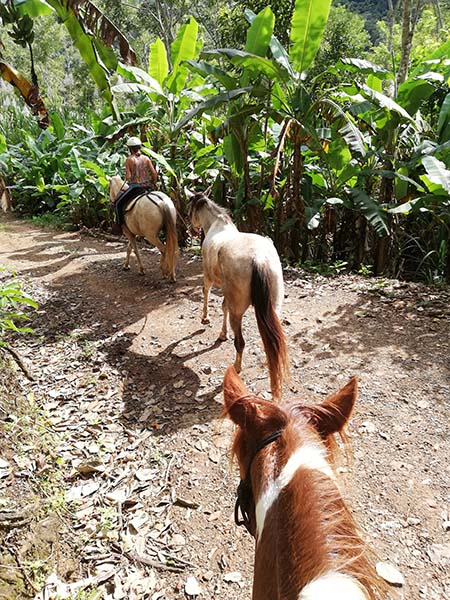
The traditional approach to horsemanship discounts many of these revelations. Horses are ‘broken’ into the acclimation to having a rider thrust upon them (seriously, who first came up with that idea?), and the ensuing relationship is often built on coercion and intimidation. There is no wiggle room for thinking things through or free will, and a one-size-fits-all catchphrase seems to serve as the mantra of choice. As I gradually unlearned my pre-existing misconceptions about interacting with these animals, I realized that so much of the dogma runs parallel to our own abusive dealings with ourselves and others. Forcing a horse to do anything will only condition him to fear the stimulus, and what’s more, you. Approaching and retreating, respecting boundaries, and earnestly working to understand why are intentional acts build trust. I learned how to navigate so many fine lines: between being a saccharine pushover and a tyrannical dictator (okay, maybe that one’s not so fine, but what lies in the middle – assertive leader – is a bit elusive); between pushing myself outside of my comfort zone and recognizing when my intuition had something important to tell me; between objectively examining my shortcomings and allowing these to dictate my growth.
